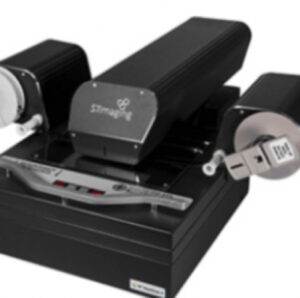
When choosing a large format scanner, a multitude of factors need consideration to ensure it meets your exact business requirements.
In today’s fast-paced digital world, businesses are increasingly looking for ways to store, share, and retrieve documents electronically. However, digitizing oversized documents can be logistically tricky, and traditional scanners often can’t meet the requirements to do so. That’s where large format scanners come in quite handy.
A large format scanner is a device specifically designed to scan atypically large printed material (-think engineering drawings, architectural blueprints, newspapers, and so on). These machines can capture every detail of an oversized document in perfect “real life” quality, positioning them as the ideal solution for businesses that need to, …well, digitize oversized documents.
When choosing a large format scanner, a multitude of factors need consideration to ensure it meets your exact business requirements. This guide will explore key features of large format scanners, with the aim of helping you to make a fully informed decision when the time comes.
Types of Large Format Scanners
Large format scanners come in two main types: flatbed and automated feeder. Flatbed scanners are ideal for scanning objects of varying sizes and thicknesses, while automated feeders are best suited for scanning multiple oversized documents at high speeds.
Size
Large format scanners are designed to scan documents larger than 11-by-17 inches, and some can even scan documents up to ANSI E size (a whopping 34-by-44). Keep in mind: large format scanners are, necessarily, large—to varying degrees, based on their intended function and capabilities. Be sure you have the office space for what you buy… before you buy it.
Support for Document Types
The highest-priority consideration when choosing a large format scanner is whether it supports the documents you’ll be scanning most frequently. Although some models can support ANSI B or above, not every large format scanner is compatible for use with such large documents. Therefore, it’s essential to verify that your potential scanner can in fact support the type of documents you’ll need to scan… before you buy it.
Applications
Large format scanners have many applications, lending them unique suitability for a range of business types and industrial fields. Architects and engineers can use them to (e.g.) scan blueprints and mockups, while manufacturing industries can scan product designs. Newspapers, magazines, posters, banners, et al are also common “fodder.”
Closing Thoughts
Large format scanners are the quintessential tool for digitizing oversized documents in a professional setting. When choosing one for your business, remember: the machine’s specs must meet your needs, in every sense. Taking the time to choose wisely can save you time, storage space, and resources—while ensuring that every detail of your documents is captured in the highest possible resolution.
Have Questions? Micro Records is Here to Help
If you have more questions about e-form software, Micro Records is here to help you with all of your needs. We can help your business to transition to a paperless way of life with outstanding e-forms and technology. For more information about how we can help you implement your new document management software, visit us online or give us a call at 877-410-SCAN. For more tips, tricks, and to see what we have been working on, be sure to follow us on Facebook, Twitter, LinkedIn, and YouTube.
